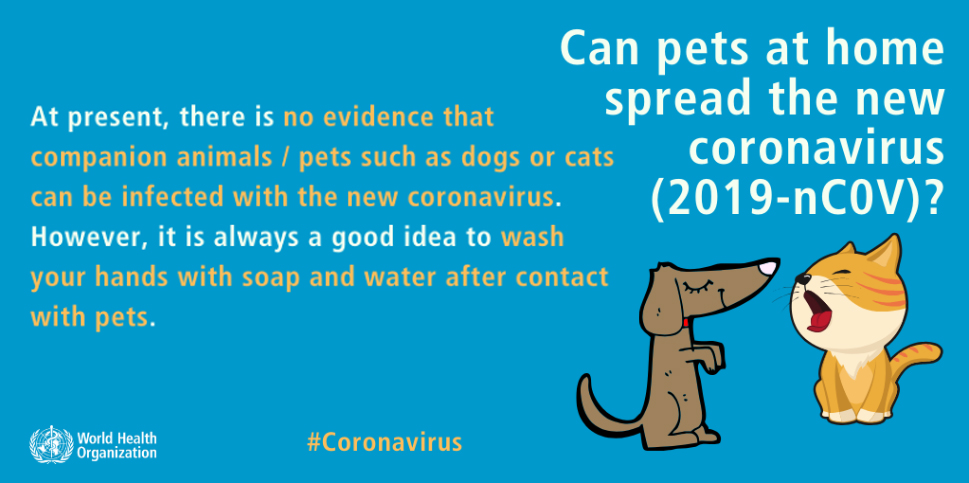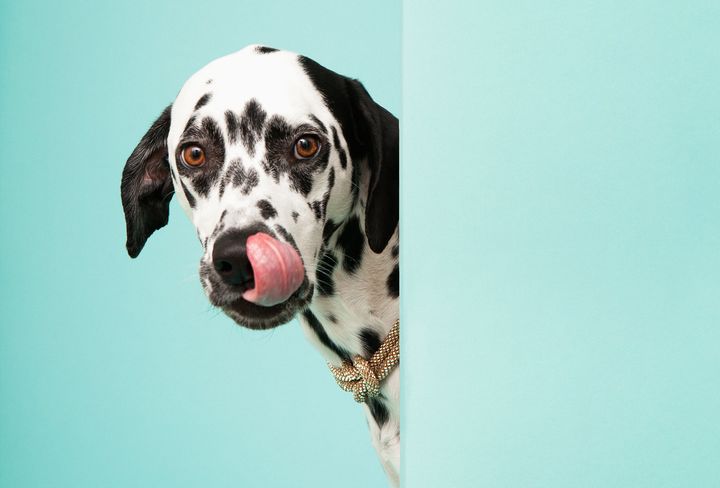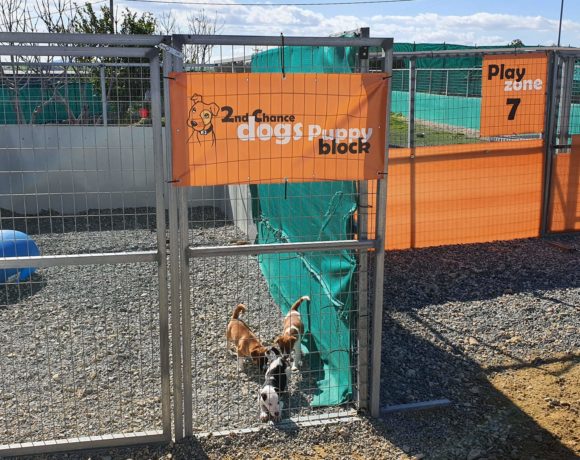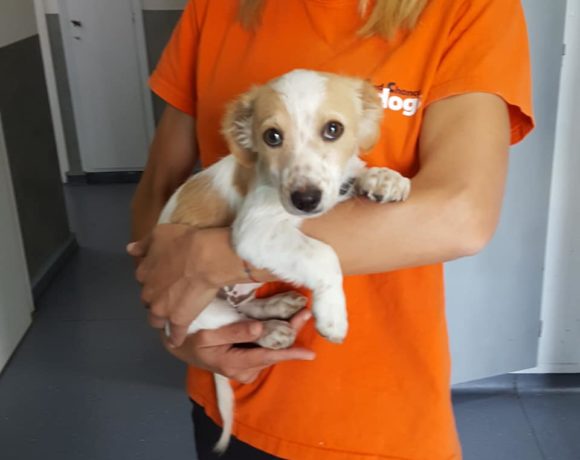Covid-19
Questions about walking your dog
Can dogs catch Covid-19?
There is no evidence to show that dogs can transmit the Covid-19 virus to humans. The main source of infection for the Covid-19 virus is human-to-human transmission.
The spread of Coronavirus (COVID-19 virus) is now having a direct impact on everyone’s daily lives, following the most recent instructions from the Government. So it’s no surprise a lot of dog owners are worried for their four-legged friends. We’ve been answering some of your questions.
The good news is, current advice from the World Health Organisation is that there’s no evidence that pets can be a source of infection or that they can become sick from COVID-19.
We encourage all pet owners to take sensible precautions, and follow the latest guidelines. We’ll also be keeping this page updated as the situation evolves.
We would like to reassure you that there is still no evidence to show that dogs can transmit the Covid-19 virus humans.
New information on COVID-19 is rapidly evolving, and information will be updated as it becomes available.

Questions about walking your dog
Yes, the latest Government decree and information from the government allows for one person to accompany your dog on a walk on lead. Households with two or more adults can take it in turns to walk their dog, take your dog out as close to your home as possible. Keep your dog on a lead to and maintain appropriate distance, as long as social distance is maintained between people and dogs. If two adults live in the same home, then they could each walk the dog separately. You must practice social distancing though, and keep at least three metres away from other people and thier dogs. Keep your dog on a lead around others and in public places and thoroughly wash your hands before leaving, and as soon as you get home again.
Dogs can be let out in the garden, or taken out to the toilet as needed. If you don’t have a private garden, just make sure these trips are as quick as possible and ensure you maintain your social distance.
The virus is most commonly passed from person to person through coughing and sneezing. There is evidence that the virus can live on surfaces for some time, depending on the type of material, temperature and other factors.
The virus cannot be transmitted through feces either. However, it is of utmost importance, both for public health and respecting our communities, that you pick up your dog’s waste and discard it responsibly. Do ensure to wash your hands every time before and after you interact with your dog and its belongings and make sure to sanitize all surfaces in your house.
There is no need to give up or quarantine thier dogs and we would urge owners not to panic. Dogs can be a great source of comfort, and a daily dog walk (following the guidelines above) will be a good thing for everyone’s physical and mental health.
Anyone who is vulnerable or elderly, with underlying health conditions, should be especially stringent and stay indoors even if they do not show any symptoms.
The most important thing is that you follow any rules and regulations as set by the government with regards to leaving the house and keeping safe. If allowed by goverment regulations to take your dog for a walk and you are not experiencing any COVID-19 symptoms, you can still walk your dog.
Although there is no evidence that pets can transmit the disease, we’d advise taking sensible precautions until more is known. It’s possible that the virus could be passed onto other people via a pet’s fur, as on any surface. We’d suggest not interacting with pets owned by people who might themselves be self-isolating, just in case. If this is unavoidable, ensure you wash your hands after any contact.
No. You should only socialise with people you are already living with. If you see someone you know when you are on your walk, including other dog owners, stay at least three metres apart, if possible stay completely away from the other person and thier dog, avoid petting their dog and wash your hands thoroughly when you get home.
Irrespective of the pandemic we need to acknowledge the fact that, no matter how well trained our dog is, there will always be that possibility for a situation to happen which you have not trained him for, and sometimes the consequences could be quite devastating. So, before you decide to unleash your dog, remember the importance of leashes and how they give you greater control when meeting up with other dogs. You might be saying, “Don’t worry, my dog is very friendly.” Yes, that may be true. But what about the other dogs you meet? When in doubt, use a leash. It is always best to be safe than sorry.
Your dog may see a cat or decide to chase another dog and run across the road , do you really want to risk your dogs life or the drivers life that may try avoid hitting him and end up getting seriously hurt? better keep him on a leash for everyone’s safety.
No even before the pandemic, you are not allowed to let your dog off lead in public areas, especially now It's important to keep at least three metres apart from others and avoid situations where your dog might approach and greet other people or dogs. This means walking your dog on a leash when in areas with other people or other dogs. Where dogs are not used to walking on a lead, keeping their attention on you with praise and rewards can help make walks a positive experience.
We appreciate how difficult a time this must be for you, especially as you are trying to avoid highly populated areas when taking your dog for a walk. Government guidelines say you should limit contact with others completely. Your dog will appreciate any time outside, however short.
Consider how you can keep your dog’s walk interesting.
You could try mapping out a slightly different route in advance to give your dog a chance to experience new sights and smells. A fallen tree, bench or even a bus stop can be made into fun for your dog by getting them to jump over, circle around or just place their paws on them in return for a treat. Make sure anything you ask your dog to stand on is low to the ground and sturdy enough to keep them having a fun and safe time. Try giving your dog a different trick or action for them to do at every lamppost, tree, post box, etc, rewarding them with a treat or quick game.
Follow the goverment instructions
If you are at home because you have shown signs of coronavirus (persistent cough or high temperature etc.) then you should keep your dog in as well and only exercise them in the house or garden. If you live by yourself this should be for 14 days from when your symptoms started. This is not ideal, but you need to keep yourself and others well and safe and follow the instructions given to you by the goverments health advisors
If you have a problem taking care of your dog because of not being able to go out then immediate look into sending the dog to a friends or relatives house temporarily
Dogs will continue to need physical activity. Therefore, you should keep the time allotted for walking to carry out physical activity, but you should replace the walk with play. For example: a ball game in the backyard or if you live in apartment, you can create new games with new toys or you can try to enrich the environment with hidden treats so that your dog does not get bored.
It is possible for your pet to track virus back into the house if COVID-19 is present on the street -- because an infected person has coughed or spit on the street. The same happens with your shoes, which is why it is recommended to have “street shoes”, and change to “house shoes” as soon as you get home. You may want to wash your dog’s paws with pet safe soap and water after each walk. Do not use alcohol or household disinfectants on animals, as it can harm their skin. Daily bathing is not recommended for dogs, but follow instructions on the animal shampoo bottle and keep them clean and well-groomed on a daily basis.
There is no evidence of the risk of transmission of COVID-19 from dogs, However even if your dog is healthy, sterilised, vaccinated against rabies, and your community is tolerant of free roaming dogs you should never allow your pet dog to roam freely as there are many dangers for a free roaming dog, such as poison, being hit by a vehicle, getting into a dog fight or even being killed by someone who has a fear of dogs.
Inlight of the current pandemic your dog will be in even more danger as it might be the case that because of lack of knowledge and awareness on the nature of coronavirus, communities across the world are currently unsure and afraid of free roaming dogs. We ALWAYS highly recommend that restriction is applied in terms of letting your dog roam freely so as to ensure its safety.
NO in this case you should not leave your home, so this would include taking your dog for a walk. If you have a private garden then you can take your dog there to go the toilet and to play games. If you donot have a garden then it would be best to arrange that a friend or relative take the dog temprarily until you are allowed to go out
Follow the goverments instructions and information provided as strict as possible as this will save lives
LETS TAKE CARE OF OUR PETS
IN THESE DIFFICULT TIMES
Let’s protect our pets
There is no evidence that pets can be a source of infection to other animals or humans. We highly recommend all pet owners take care of their animals and keep calm. Pets shouldn’t be abandoned under any circumstance and, as always, there’s absolutely no need for culling.
All around the world dogs improve and add value to our lives. They keep us company, protect homes and livestock, and can learn to do extraordinary tasks – so let’s make sure we keep them, and ourselves, protected.

What precautions should I take with my own dogs?
If possible, bath your dog often and regularly wash your hands with soap and water after touching them.
Never put alcohol-based hand wash or disinfectants on your dog, as this could irritate their skin or may be poisonous if it’s licked.
WASH YOUR HANDS
Although there is no current evidence that suggests the coronavirus can be transmitted to or from companion animals, it’s always a good idea to follow basic hygiene practices around animals. This includes washing your hands thoroughly throughout the day and before and after direct contact with your pets, their food or their supplies.
DESIGNATE AN EMERGENCY CAREGIVER
Proactively identify someone who could help with their short- or long-term care in the event you are unable to care for your pet. Consider a family member, friend, neighbor or your favorite boarding facility.
STOCK UP ON PET SUPPLIES
Prepare a kit with essential supplies to have on hand in the event of an emergency. Your emergency kit should include a 30-day supply of your pets’ medications, as well as at least two weeks’ worth of food.
CREATE A PET DOSSIER
If your emergency caregiver’s assistance is needed, make it easier for them by having all of your pets’ information in one place. Consider including things like habits, food preferences, medical conditions and medications taken, veterinarian contact information, and any behavioral tendencies.
Dogs at rescue centres, dog shelters and community pounds are in need of assistance!
Dogs should not become the victims in this pandemic. They are vulnerable, and they need our help and protection. As there is no evidence that stray dogs or cats can transmit COVID-19 to people or get sick from it, we don’t need to be scared or concerned about these animals passing on the infection.
As always, we should follow all sanitary recommendations as indicated by health authorities, such as hand washing.
What can I do to help animals living in the street during this crisis?
Since the primary way to stop the outbreak is to stay at home, leaving your home to provide food or water to a dog or cat should involve eliminating all non-essential interactions outside the house.
If there are animals who depend on you for food or water, place these without interacting with the animal, as the same animal might be fed by multiple people in the community whose medical and travel histories are unknown. The governments is issuing specific permits for organizations and individuals who feed street dogs/cats.

.
Donate
A lot of animal shelters seem to be suffering because people are no longer donating, and volunteers can no longer go to the facilities. We are no exception.
One unfortunate side effect of the pandemic has been that shelters and rescue centers are no longer able to take volunteers, funding has dropped, and people that could otherwise adopt, are not doing so. New intakes have halted as dogs cannot be rehomed becuse of social distancing, this is dangerous to animals that depend on this care for their survival and welfare. Donating food or money could be an easy and helpful thing to do.
Dogs are still in need and the work of 2nd Chance Dogs goes on 365 days a year with no exception even in a pandemic. We’d be grateful for any donation amount you can spare to support our ongoing efforts to help animals at this difficult time and into the future.
2nd Chance Dogs still has to pay for food, k9 carers salaries, utilitiy bills medications and vet bills. and your generous monetary donation will be gratefully accepted, particularly during this stressful time.
Again, thank you for standing with us and our dogs, especially now. Please check back for any future updates, and stay safe!
This uncertain and stressful time is also a wonderful opportunity to unify behind a common love of animals.
COVID-19 does not discriminate; people from all backgrounds and communities will be impacted.
A deep connection to animals transcends socio-economic, racial, ethnic and geographic boundaries and honoring that bond with compassion, not judgment, is a very simple yet impactful way to contribute positively in your community during this crisis.
Pet Health
OIE - Advises that people who are ill with COVID-19 should limit close contact with their pet until more is known about the virus. When handling pets, adhere to basic hygiene measures. This includes hand washing before and after being around or handling animals, their food, as well as avoiding kissing, licking or sharing food. Further information is here.
WSAVA - World Small Animal Veterinary Association’s guidelines are here
FVE – Federation of Veterinarians of Europe find updates and resources from FVE here
FECAVA - BSAVA's European Association’s guidelines for practices are here and for clients here
The American Veterinary Medical Association (AVMA) - AVMA have general resources alongside those specific to their region available here.
CFSG - information can be found here.
PVA - Pancyprian Veterinary Association here.
Human Health
WHO - Practices can share their infographic on their websites or on social media to allay any fears clients might have about the virus and their pets. It can be accessed here.
CDC – Centers for Disease Control and Prevention info found here:
PIO – Cyprus press information office here.





